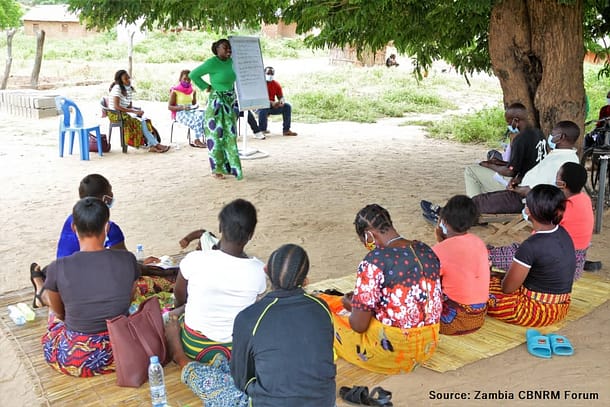Strengthening Community-based Natural Resource Management
Community-based Natural Resource Management (CBNRM) is a means for local communities to manage and benefit from the natural resources in their area. These resources include plants and animals that they choose to use for either subsistence or commercial purposes to support their livelihoods and implement locally prioritised development projects.
CBNRM is in various stages of development in the nine countries where our network operates. In some countries, CBNRM has fully matured – it supported by government policies and networks of non-governmental organisations, whereas in others it has not yet fully developed or does not receive sufficient support.
As a network spanning these different stages of development, we seek to strengthen CBNRM policies and support networks in all of our countries. We do this by sharing lessons learned from countries where CBNRM has been established with those that are still in the development phase, and introducing new ideas from the newer CBNRM programmes into the older ones as part of an adaptive management cycle.
Using Community-generated Data to Inform Decision-making
One of the core tenets of CBNRM is adaptive management, whereby information is collected that indicates the current state of a system and this is fed back into actions that improve management systems. Adaptive management is applied to each of the three pillars of CBNRM: natural resources, governance and livelihoods.
Although the adaptive management processed has been established in some of our countries, other countries have no standardised mechanism that allows communities to collect their own data to guide their management actions. CLN plans to fill these gaps by creating and implementing a standardised community-based monitoring and information system for each country where we work.
Unlike data collection and analysis led by external researchers who visit our communities, this system will be owned and led by community-based organisations. This means that they can create their own targets, decide what kind of data they wish to collect, and use the resulting information to improve their management actions in ways that will achieve their collectively defined goals.
Aligning Local Aspirations with National and Global Policies
In order to achieve their goals, local communities that engage in CBNRM need to operate within an enabling policy environment that is created at national, regional and international levels. Yet these communities often do not have the opportunities to engage with policy-makers at these levels.
Our network comprises institutions that link local communities with national governments in each of our countries. By uniting under the CLN banner, we can operate on these larger scales by reaching out to regional governing bodies (e.g. the Southern African Development Community) and engaging with relevant international institutions in the areas of sustainable development and biodiversity conservation.
When attending regional and international meetings and events, our representatives take care to present common issues that our local communities encounter that could be improved with policy-making, or object to new policies that would negatively affect these communities. The CLN thus draws from decades of experience working with our communities in our respective countries when critically evaluating proposed or existing policies and legislation that affect these communities’ interests.
Amplifying Local Voices on Global Stages
Each local community has its own unique, dynamic story that reflects local culture and tradition, history and current affairs, and the changing environment around them. Telling these stories to a global audience actively promotes broader understanding of the perspectives of rural people and the challenges they face, often as a result of global problems that they did not cause (e.g. climate change).
People living in remote rural communities often have limited access to the Internet, which limits their ability to contribute to global discourse on issues that affect them. The CLN bridges this gap, as our members work closely with local communities and can therefore collect authentic stories from the ground to be shared on our platforms.
Effective storytelling requires framing the perspectives expressed by local community members in ways that resonate with people living in completely different contexts. Using the power of social media and connections with traditional media outlets, the CLN provides a platform through which local voices can be heard on global stages.




